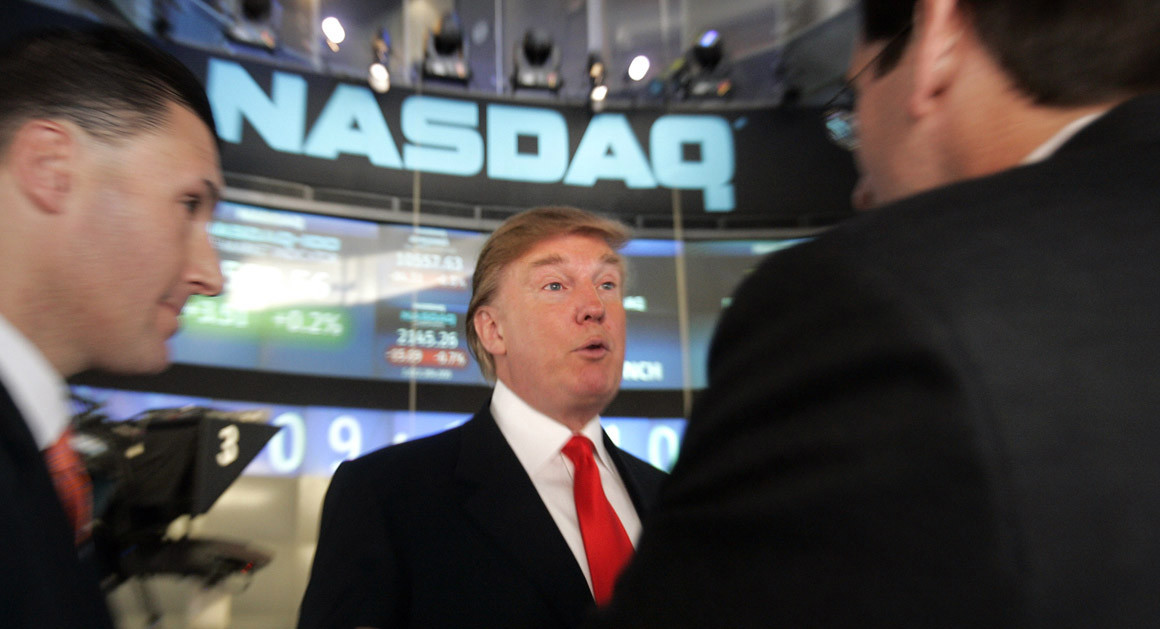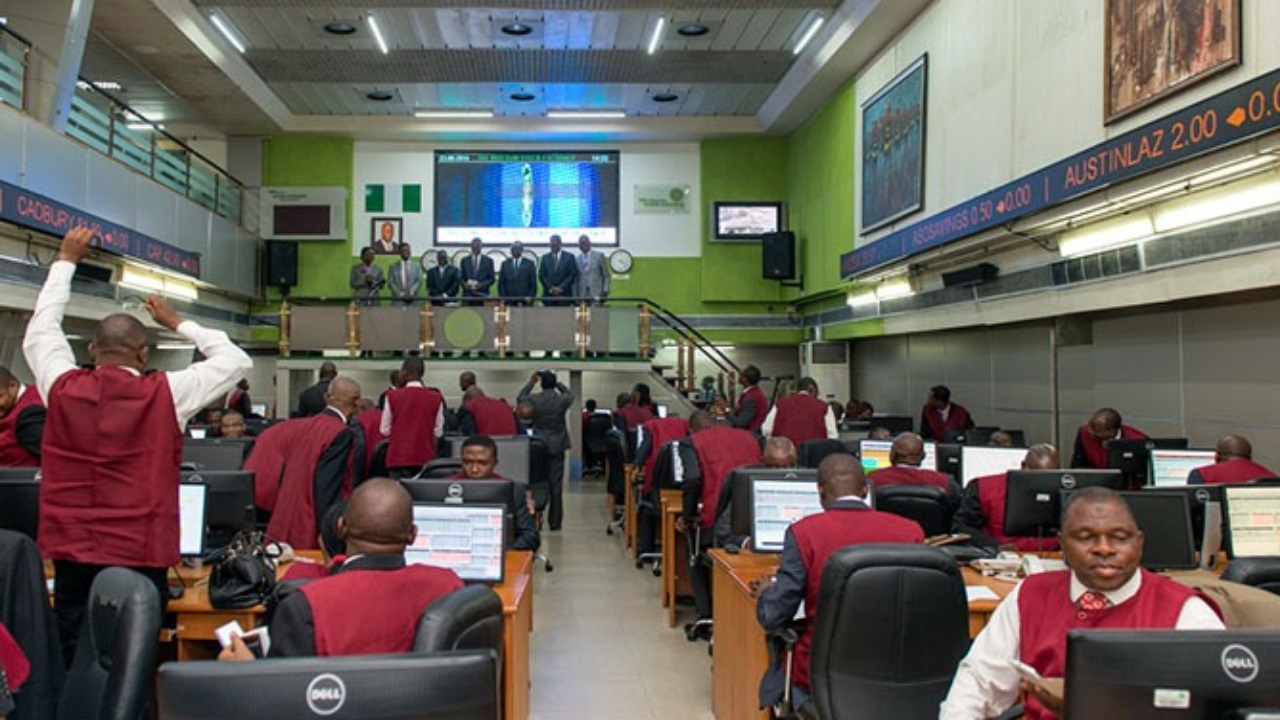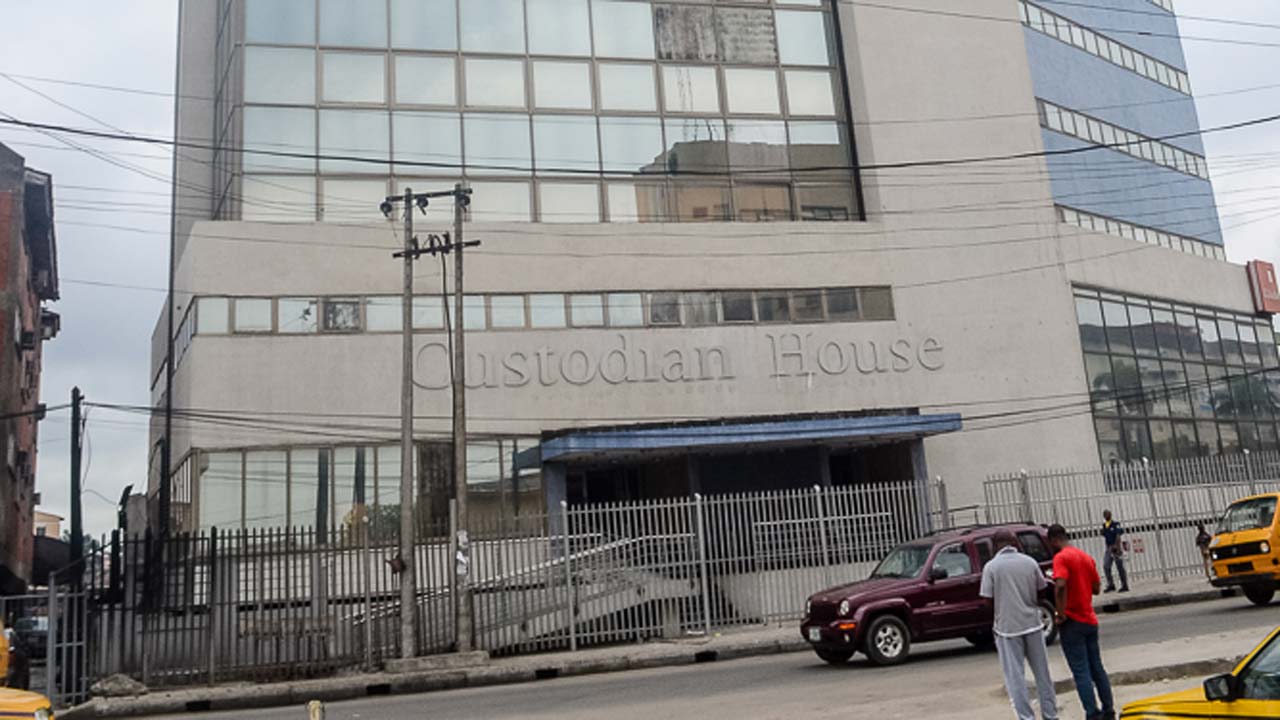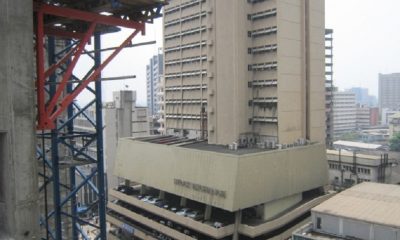Economy
US, China Trade Talks Dominate Wall Street

By Investors Hub
The major U.S. index futures are pointing to a mixed opening on Friday, with stocks likely to continue experiencing choppy trading following the lackluster performance seen in the previous session.
Traders may be reluctant to make significant moves amid uncertainty about the second round of trade talks between the U.S. and China.
Various news outlets said China had offered to reduce its trade surplus with the U.S. by $200 billion, although Chinese Foreign Ministry spokesperson Lu Kang denied the reports.
?This rumor is not true. This, I can confirm,? Lu told reporters. ?I do not know about the offers made by either party.?
He added, ?As we know the consultations are still underway. I am not getting ahead of that. The consultations themselves are constructive.?
After ending Wednesday?s trading mostly higher, stocks showed a lack of direction over the course of the trading session on Thursday. The major averages spent the day bouncing back and forth across the unchanged line before closing modestly lower.
The major averages ended the day in negative territory but off their lows of the session. The Dow dipped 54.95 points or 0.2 percent to 24,713.98, the Nasdaq slipped 15.82 points or 0.2 percent to 7,382.47 and the S&P 500 edged down 2.33 points or 0.1 percent to 2,720.13.
The choppy trading on Wall Street came as traders expressed some uncertainty about the second round of trade talks between the U.S. and China.
Blaming the trade policies of previous administrations, President Donald Trump expressed some doubt about whether the high-level trade talks with China will be successful.
Trump told reporters he tends to doubt the talks will be successful in remarks during an Oval Office meeting with NATO Secretary General Jens Stoltenberg.
“The reason I doubt it is because China has become very spoiled,” Trump said. “The European Union has become very spoiled. Other countries have become very spoiled, because they always got 100 percent of whatever they wanted from the United States.”
However, Trump also claimed he would not allow the U.S. to be taken advantage of anymore and sounded more optimistic in later remarks.
“I can only tell you this; we’re going to come out fine with China,” Trump said. “Hopefully, China’s going to be happy. I think we will be happy.”
The comments from Trump come as Chinese officials have traveled to Washington for a second round of trade talks with Treasury Secretary Steven Mnuchin and others.
On the U.S. economic front, the Conference Board released a report showing a continued increase by its index of leading economic indicators.
The Conference Board said its leading economic index rose by 0.4 percent in April, matching the upwardly revised increase in March as well as economist estimates.
Ataman Ozyildirim, Director of Business Cycles and Growth Research at the Conference Board, said, “April’s increase and continued uptrend in the U.S. LEI suggest solid growth should continue in the second half of 2018.”
“However, the LEI’s six-month growth rate has recently moderated somewhat, suggesting growth is unlikely to strongly accelerate,” he added.
Before the start of trading, the Labor Department released a report showing a bigger than expected increase in initial jobless claims in the week ended May 12th.
The report said initial jobless claims rose to 222,000, an increase of 11,000 from the previous week’s unrevised level of 211,000. Economists had expected jobless claims to inch up to 215,000.
Meanwhile, a separate report from the Philadelphia Federal Reserve unexpectedly showed a significant acceleration in the pace of growth in regional manufacturing activity in the month of May.
Among individual stocks, shares of J.C. Penney (JCP) moved sharply lower after the department store chain reported a narrower than expected first quarter adjusted loss but cut its full-year earnings guidance.
Retail giant Wal-Mart (WMT) also moved to the downside on the day despite reporting first quarter results that exceeded analyst estimates on both the top and bottom lines.
On the other hand, shares of Dillard’s (DDS) jumped after the department store operator reported first quarter earnings that exceeded analyst estimates.
Most of the major sectors showed only modest moves on the day, contributing to the lackluster performance by the broader markets.
Energy stocks saw considerable strength, however, with the sector continuing to perform well even as the price of crude oil pulled back off its early highs.
Reflecting the strength in the energy sector, the NYSE Arca Oil & Gas Index advanced by 1.8 percent, while the NYSE Arca Natural Gas Index and the Philadelphia Oil Service Index climbed by 1.7 percent and 1.5 percent, respectively.
Brokerage and housing stocks also saw modest strength on the day, while utilities stocks extended the downward move seen over the past few sessions.
Economy
NGX RegCo Cautions Investors on Recent Price Movements

By Aduragbemi Omiyale
The investing public has been advised to exercise due diligence before trading stocks on the Nigerian Exchange (NGX) Limited.
This caution was given by the NGX Regulation Limited (NGX RegCo), the independent regulatory arm of the NGX Group Plc.
The advisory became necessary in response to notable price movements observed in the shares of certain listed companies over recent trading sessions.
On Monday, the bourse suspended trading in the shares of newly-listed Zichis Agro-allied Industries Plc. The company’s stocks gained almost 900 per cent within a month of its listing on Customs Street.
In a statement today, NGX RegCo urged investors to avoid speculative trading based on unverified information and to consult licensed intermediaries such as stockbrokers or investment advisers when needed.
It explained that its advisory is part of its standard market surveillance functions, as it serves as a measured reminder for investors to prioritise informed and disciplined decision-making.
The notice emphasised that the Exchange will continue to monitor market activities closely in line with its mandate to ensure a fair, orderly, and transparent market.
“NGX RegCo encourages all investors to base their decisions on publicly available information, including a thorough assessment of company fundamentals, financial performance, and risk profile,” a part of the disclosure said.
It reassured all stakeholders that the NGX remains stable, well-regulated, and resilient, saying the platform continues to foster an environment where investors can participate with confidence, supported by robust oversight and transparent market operations.
“Our primary responsibility is to maintain a level playing field where market participants can trade with confidence, backed by timely and accurate information.
“This advisory is a routine communication, reinforcing that sound fundamentals, not speculation, remain the foundation for sustainable investment outcomes. We are fully committed to preserving the integrity and stability of our market,” the chief executive of NGX RegCo, Mr Olufemi Shobanjo, stated.
Economy
Stronger Taxpayer Confidence, Others Should Determine Tax Reform Success—Tegbe

By Modupe Gbadeyanka
The chairman of the National Tax Policy Implementation Committee (NTPIC), Mr Joseph Tegbe, has tasked the Nigeria Revenue Service (NRS) to measure the success of the new tax laws by higher voluntary compliance rates, lower administrative costs, fewer disputes, faster resolution cycles, and stronger taxpayer confidence.
Speaking at the 2026 Leadership Retreat of the agency, Mr Tegbe said, “Sustainable revenue performance is built on trust and efficiency, not enforcement intensity,” emphasising that the legitimacy and predictability of the system are more critical than punitive measures.
He underscored that the country’s tax reform journey is at a critical juncture where effective implementation will determine long-term fiscal outcomes.
The NTPIC chief stressed that tax policy must serve as an enabler of governance, and should embody simplicity, equity, predictability, and administrability at scale.
These principles, he explained, foster voluntary compliance, reduce operational friction, and strengthen investor confidence. He warned that ad-hoc adjustments or policy drift could undermine reform momentum, unsettle businesses, and deter investment, which thrives on predictable rules rather than shifting announcements. Structured sequencing, clear transition mechanisms, and continuous feedback between policymakers and administrators are therefore critical to sustaining reform credibility.
Mr Tegbe further argued that revenue reform cannot succeed in isolation. Achieving sustainable gains requires a whole-of-government approach, leveraging robust taxpayer identification systems, integrated financial data, efficient dispute resolution, and harmonised coordination across federal and sub-national levels. This approach, he said, reduces leakages, eliminates multiple taxation, and reinforces confidence in the system.
He noted that the passage of four new tax laws marks only the beginning of a broader reform agenda, describing the initiative as a systemic recalibration of Nigeria’s fiscal architecture, rather than a routine policy update.
He further asserted that the true measure of success will be the credibility of implementation, not the design of the laws themselves.
The NRS, he noted, functions as the nation’s “Revenue System Integrator,” with outcomes reflecting the strength of an interconnected ecosystem that encompasses policy clarity, enforcement consistency, digital infrastructure, dispute resolution efficiency, and intergovernmental coordination.
Economy
NUPENG Seeks Clarity on New Oil, Gas Executive Order

By Adedapo Adesanya
The National Union of Natural and Gas Workers (NUPENG) has expressed deep concern over the Executive Order by President Bola Tinubu mandating the Nigerian National Petroleum Company (NNPC) Limited to remit directly to the federation account.
In a statement signed by its president, Mr William Akporeha, over the weekend in Lagos, the union noted that the absence of detailed public engagement had naturally generated tension within the sector and heightened restiveness among workers, who are anxious to know how the new directive may affect their employment, welfare and job security, especially as it affects NNPC and other major operations in the oil and gas sector.
It pointed out that the industry remained the backbone of Nigeria’s economy, contributing significantly to national revenue, foreign exchange earnings, and employment.
The NUPENG president affirmed that any policy shift, particularly one introduced through an Executive Order, has far-reaching consequences for regulatory frameworks, Investment decisions, operational standards, and labour relations within the sector.
According to him, “there is an urgent need for clarity on the scope and objectives of the Executive Order -What precise reforms or adjustments does it introduce? “Its implications for the Petroleum Industry Act -Does the Order amend, interpret, or expand existing provisions under PIA?
“Impact on workers and existing labour agreements-Will it affect job security, conditions of service, Collective Bargaining agreements or ongoing restructuring processes within the industry? “Effects on indigenous participation and local content development -How will it affect Nigerian companies and employment opportunities for citizens?”
He warned that without proper consultation and explanation, misinterpretations of the Executive Order may spread across the industry, potentially destabilising operations and undermining industrial harmony that stakeholders have worked hard to sustain.
“Though our union remains committed to constructive engagement, national development and stability of the oil and gas sector, however, we are duty-bound and constitutionally bound to protect the rights and welfare and job security of our members whose livelihoods depend on a clear, fair and predictable policy framework,” Mr Akporeha further stated.
-

 Feature/OPED6 years ago
Feature/OPED6 years agoDavos was Different this year
-
Travel/Tourism10 years ago
Lagos Seals Western Lodge Hotel In Ikorodu
-

 Showbiz3 years ago
Showbiz3 years agoEstranged Lover Releases Videos of Empress Njamah Bathing
-

 Banking8 years ago
Banking8 years agoSort Codes of GTBank Branches in Nigeria
-

 Economy3 years ago
Economy3 years agoSubsidy Removal: CNG at N130 Per Litre Cheaper Than Petrol—IPMAN
-

 Banking3 years ago
Banking3 years agoSort Codes of UBA Branches in Nigeria
-

 Banking3 years ago
Banking3 years agoFirst Bank Announces Planned Downtime
-

 Sports3 years ago
Sports3 years agoHighest Paid Nigerian Footballer – How Much Do Nigerian Footballers Earn



















